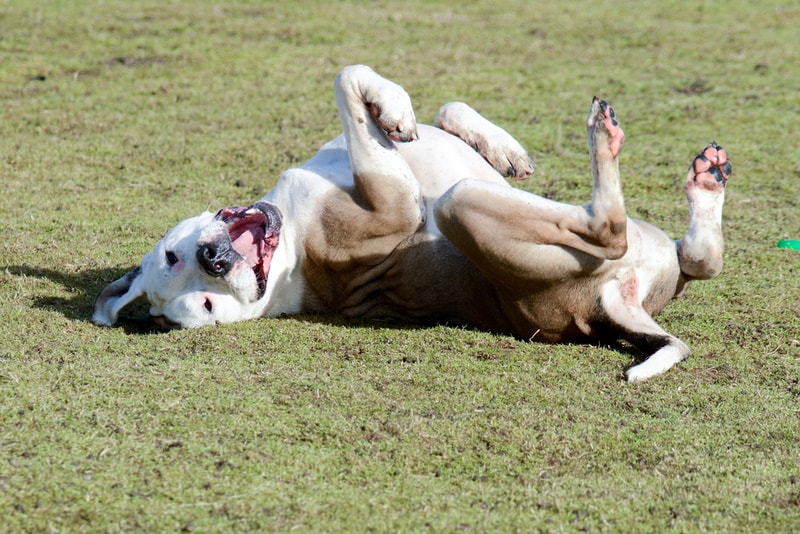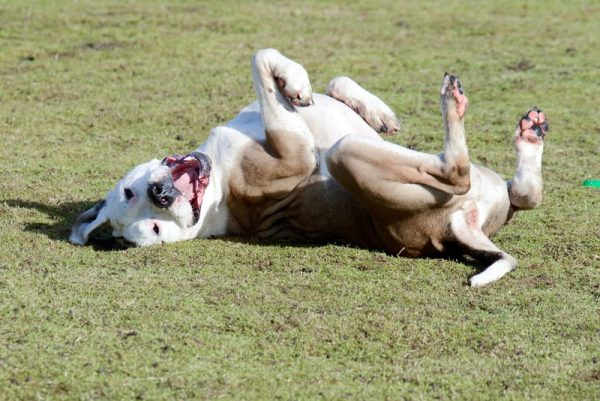Most dogs enjoy rolling on their back, whether out in the grass, during playtime, or while getting some cuddles. But why do dogs roll on their backs? What does it mean?
Find out the surprising reasons your dog may roll on their back, what they mean, and when you need to be concerned.
The 6 Reasons Why Dogs Roll on Their Backs
1. Scratching an Itch
Sometimes, a dog is rolling on their back for the most obvious reason. There’s an itch they can’t scratch otherwise. Dogs are remarkably flexible sometimes, but they usually can’t get in the right position to scratch those elusive spots between their shoulder blades or over their hips. Rubbing their backs against a rough surface can scratch that itch.
Everyone gets itchy sometimes, but if your dog is scratching a lot and rolling on their back often, it could be a sign of parasites such as fleas, an allergy of some kind, a skin infection, or an insect bite, for example. Be sure to seek veterinary attention if your dog is scratching excessively or their skin looks red, inflamed, crusty, or hairless.
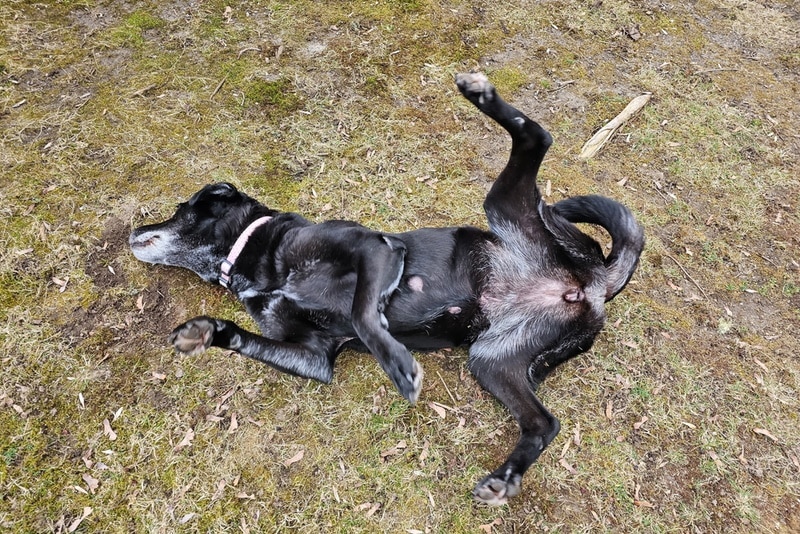
2. Masking Scent
If your dog likes to roll on their back in smelly stuff, like other animals’ poop or decaying plants, they’re trying to mask their own scent. These scents may smell awful to us, but to dogs, they’re pungent enough to disguise the tell-tale dog scent and stalk prey.
3. Seeking Attention
Dogs may roll onto their backs when they’re seeking your attention or approval. By exposing their belly, they might be begging you for a tummy rub or playtime. For many dogs, a slow belly rub is a soothing and relaxing experience as well.
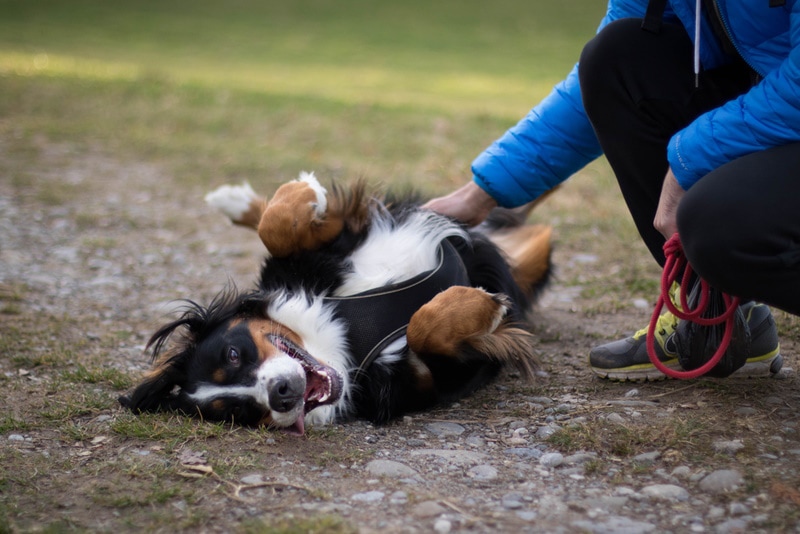
4. Displaying Confidence & Security
An exposed belly is a vulnerable place that dogs feel inclined to protect. If your dog is rolling on their back, it shows that they feel confident and secure, relaxing or sleeping in an exposed position in your presence.
5. Saying “Hello”
Dogs that roll on their backs when they meet someone could simply be saying “hello.” If the behavior is accompanied by tail wagging, butt wiggles, and a relaxed facial expression, it’s a positive sign that your dog feels friendly and playful.
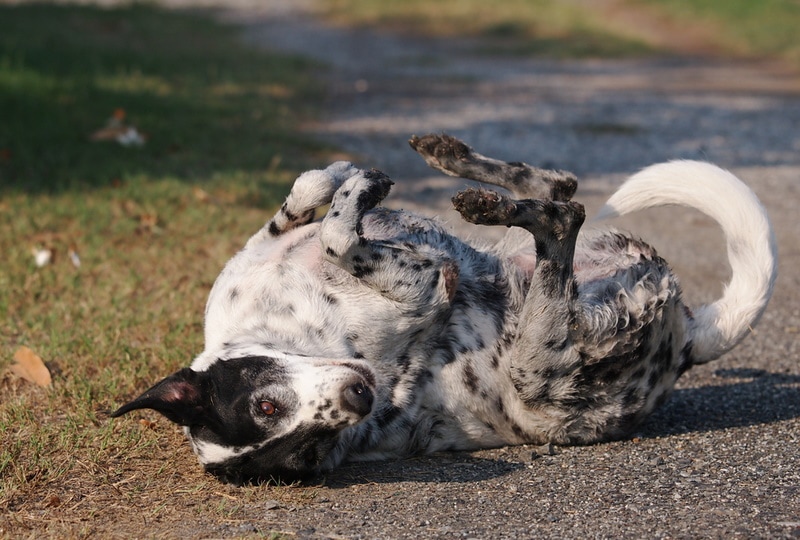
6. Appeasement
Dogs often show appeasement behaviors to communicate that they want to avoid conflict and show a person or another dog that they’re peaceful and not looking for a fight. This is often seen in puppies but can show in older dogs. In some cases, dogs may pee a little, showing submissive urination, and/or show other appeasing or self-soothing behaviors, such as yawning or lip licking.
Should I Worry If My Dog Rolls on Their Back Often?
There are many reasons your dog may roll on their back, but most of them are just normal dog behavior. If your dog is rolling on their back often and has signs of skin irritation or itchiness, such as constantly biting or scratching at their skin and paws, that could indicate a skin condition that needs treatment.
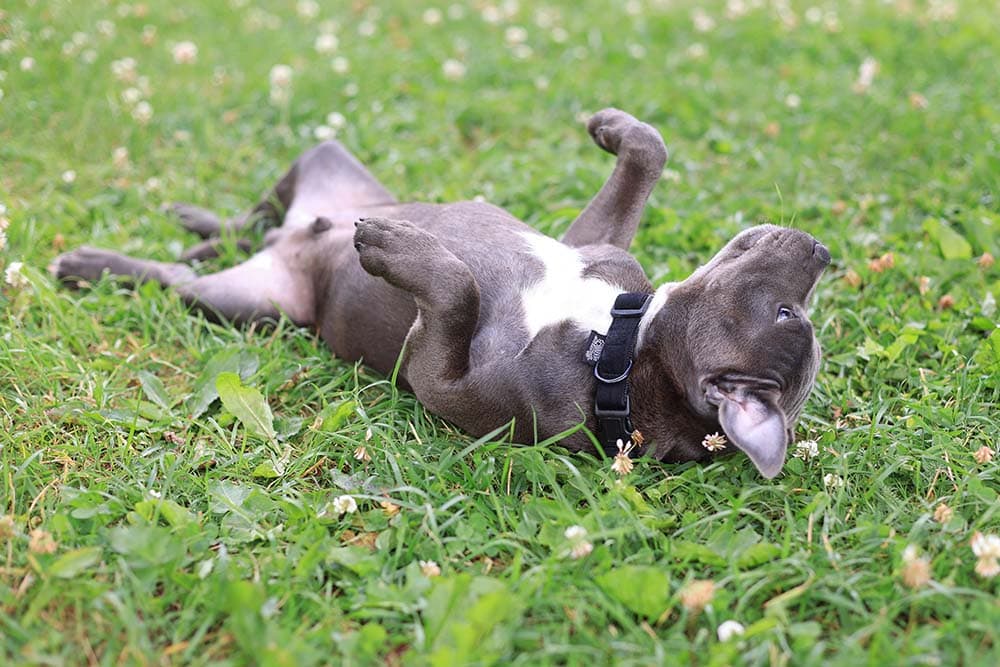
Conclusion
A dog rolling on their back is just another unique behavior that could mean a lot of different things, most of which are nothing to worry about. The difference in what your dog is trying to communicate comes down to the dog’s overall behavior in context, which reveals if the dog is relaxed, happy, playful, or stressed out.
Featured Image Credit: Martin Christopher Parker, Shutterstock

